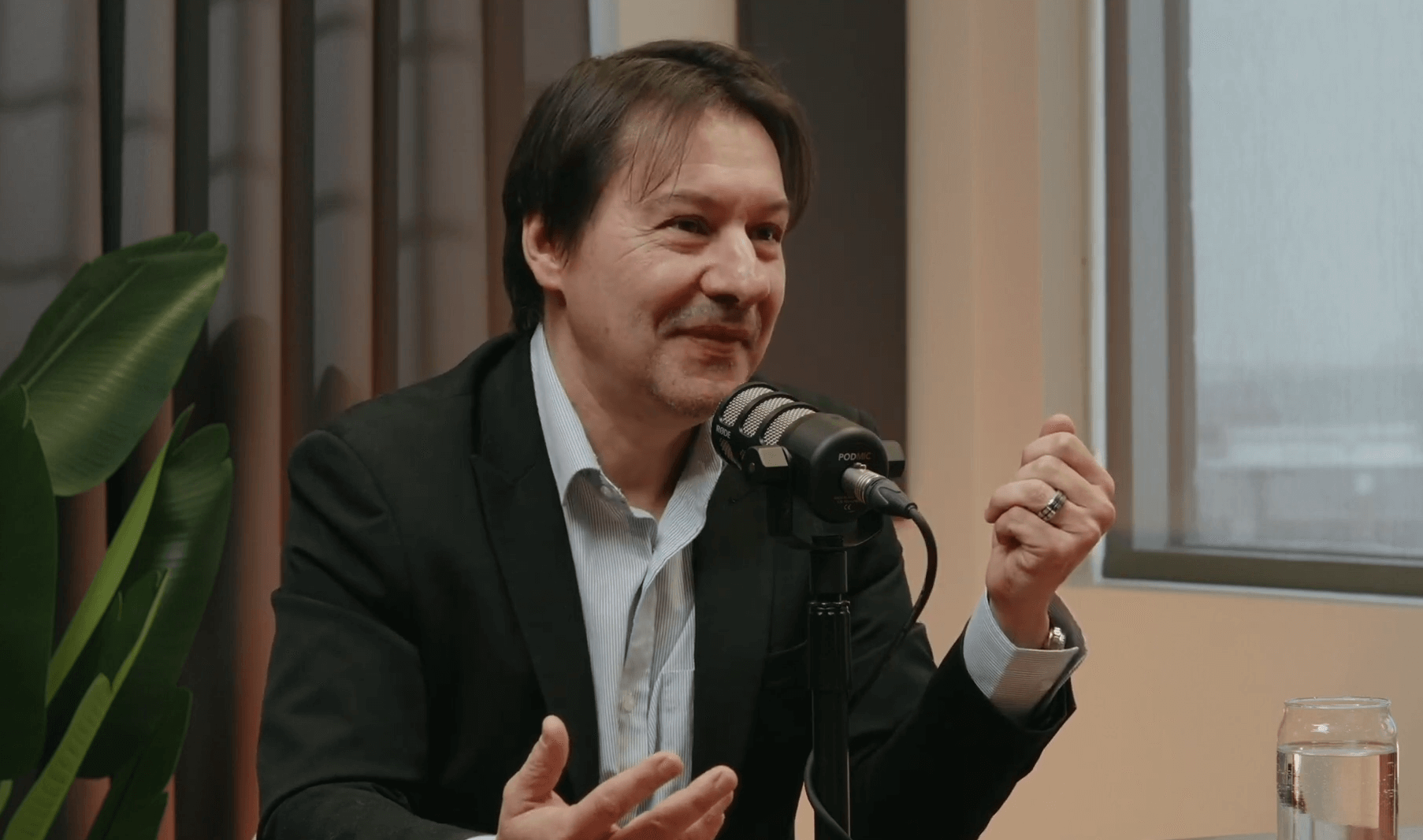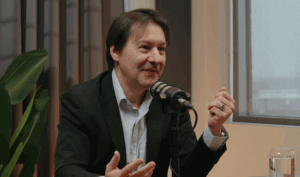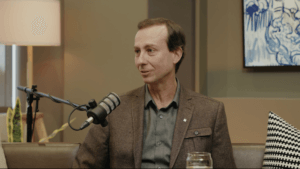Guest : Philippe Chevalier, Investigative Detective, President of Sarx
Written by : Claudine Fyfe, President of Fynlam
Corporate investigations are no longer a luxury or a sign of excessive mistrust—they have become an essential risk‑management tool. In this podcast, seasoned investigator and agency co‑founder Philippe Chevalier takes us into the little‑known yet ever‑present world of professional cyber‑investigations, organizational fraud, and corporate crime.
Ever since business has existed, counterfeiting, forged documents, phantom invoices, and logistics theft—like trucks that “vanish” between Montréal and Toronto—have been recurring realities. “It’s not fiction; it’s structural, almost natural,” says Philippe Chevalier.
The Proximity of Crime: Denial as the First Enemy
What often makes companies vulnerable is denial. We assume it only happens to others, that our firm or our people are safe. Big mistake. A fraudster can be a trusted supplier, a strategic customer, or even a key employee. Criminal organizations can deliberately infiltrate businesses under a veneer of legitimacy, irreparably tarnishing a company’s image.
“A cyber-investigation costs little. But the losses it can prevent may be 10 or even 100 times greater.”
“Business reputation is capital. It’s money.”
Sectors Most at Risk
While industries such as transportation or franchising may be easier to infiltrate, reality is more nuanced. Organized crime weighs risk against reward and exploits any weakness. Front men and women—doctors, lawyers, notaries with spotless reputations—become the legal arms of criminal networks, either out of interest or vulnerability.
When to Act? Too Often, It’s Already Too Late
Organizations usually call Philippe when the damage is done. Intervention should begin at the first weak signals: prices that are too low, dubious documents, inconsistencies, unusual behavior. Quiet, lawful cyber‑investigations can uncover critical information before a partnership or strategic hire turns into a nightmare.
Artificial Intelligence in the Service of Investigation
Philippe’s agency uses a private AI designed to harvest public data and filter it to reveal the professional behind the profile. AI doesn’t replace humans; it prepares the ground for investigators, who first look for red flags (lawsuits, harassment claims, fraud) but also for positive indicators. All of this is done strictly within the law (Private Security Act, section 88).
Food Counterfeiting and the Human Weakness
Food counterfeiting is a growing criminal trend: fake Parmesan, counterfeit olive oil, and more. The risk is low, profits high. These scams exploit the weight of ISO standards, the routine nature of inspections, and—above all—human weakness. That’s why awareness exercises, like those Philippe conducts in airports, are so valuable for testing vigilance.
Trust Does Not Exclude Control
Betrayal comes from people, not procedures. The MICE matrix (Money, Ideology, Compromise, Ego) explains how a reliable person can become a target for crime. Education, training, and—above all—organizational alertness are the best antidotes.
Obstacles and solutions: Daring to face reality
Why don’t we act? Because we think it doesn’t concern us. Because we fear intrusion. Because we still underestimate the value of reputation in business. As Philippe Chevalier says: “Problems come from people, not from Excel spreadsheets.” and “The flaw isn’t in the cloud. It’s human.”
“A cyber-investigation isn’t espionage. It’s simply about collecting and interpreting public, legal, and relevant data.”
The flaw? The human factor.
“MICE: Money, Ideology, Compromise, Ego. These are the four levers manipulators use to corrupt.”
“Even a credible professional—a lawyer, CPA, or doctor—can become a front for a criminal organization. All it takes is one weakness: debt, flattery, vulnerability.”
Philippe’s Advice
- Be responsible and vigilant—“every action has a consequence.”
Check before you sign or hire.
- Don’t assume it only happens to others.
Fraud is now an industry. If your company has value, it is a target.
- Believe not what you see, but what you understand.
Fake documents, polished pitches, legal façades—anything can be staged.Personal Note
One line from my interview with Philippe Chevalier struck me:“Don’t believe what you see; believe what you understand.”
In a world where documents, identities, and intentions can all be fabricated, intuition must be backed by verification. Trust does not exclude control.This podcast (which I encourage you to listen to) is an invitation to act more consciously—without fear, but with discernment.


